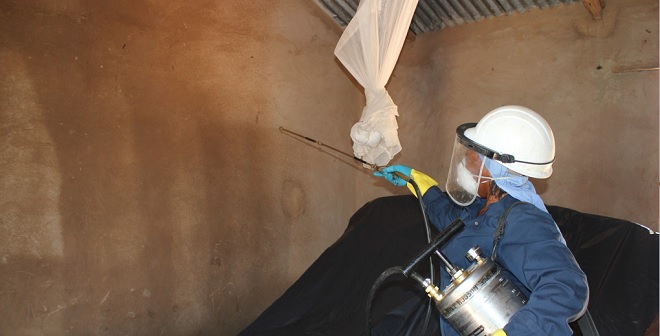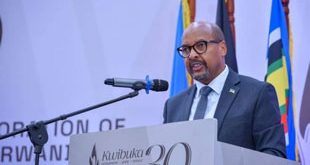
Kampala, Uganda | THE INDEPENDENT | The planned Indoor Residual Spraying (IRS) initially scheduled to take place in May in high malarial districts has been cancelled. The World Health Organisation recommends IRS as a prevention mechanism should be done every after two years for efficacy.
The intervention was last done in Uganda in 2016 in the districts of Kitgum, Amuru, Apac, Gulu, Kole, Lamwo, Nwoya, Oyam and Pader, which have the highest malaria prevalence in the country. However, in 2018 when these areas were due to be sprayed again, the programme was skipped due to financing challenges. When they got the funding, they arranged that the exercise happens this year.
Dr Jimmy Opigo, the manager of the Malaria Control Programme at the Ministry of Health told Uganda Radio Network that the exercise has been halted again even as some of the high malarial districts are confirming positive cases in thousands.
Dr Opigo says that eleven districts including some that had previously benefited from IRS are not doing well and the number is anticipated to rise with some parts of the country already reporting floods. He says that surveillance teams in areas around Lake Kyoga are increasingly registering higher numbers of confirmed cases per week and are challenged on response plans with the active COVID-19 pandemic.
According to the weekly malaria surveillance report for last week, there’s an increase in malaria cases in many districts with Isingiro reporting the highest cases confirmed at health facilities standing at 4,428 cases followed by Yumbe and Dokolo at 3,929 and 2,569 cases respectively. The lowest cases were recorded in Ntoroko, Bukwo and Rukiga districts where less than 50 cases were confirmed at the various health facilities.
Opigo said with the suspended interventions that are usually geared towards protecting against malaria infection, they are planning to come up with initiatives that can either be integrated in the COVID response or even use the food aid delivery task force to deliver especially bed nets. This proposal has been made to his seniors and his team is just awaiting feedback. The initial plan for the distribution of long-lasting mosquito nets was also cancelled early this month.
Although funding for malaria has not been affected or even the supplies, Opigo says the aftermath of COVID -19 could present a bad time for malaria interventions. Before most programmes were halted, officials working in the area of malaria were challenged with accounting for the stocks they got as malaria drugs and supplies were among the most stolen from health facilities.
Ministry of Health however notes that this challenge of artificial shortages of medicines was being solved with strong health facility mechanisms to account and record every dose being dispensed. However, last year Uganda registered an unanticipated surge of malaria with over 60 districts including Kampala and Wakiso getting affected. Before all of them could be declared malaria-free, COVID 19 set in.
Amidst the outbreak now, Health Minister Jane Ruth Aceng says they are ensuring key people especially those staying in markets overnight and factory workers are protected from malaria as they take up COVID-19 prevention initiatives.
******
URN
 The Independent Uganda: You get the Truth we Pay the Price
The Independent Uganda: You get the Truth we Pay the Price


